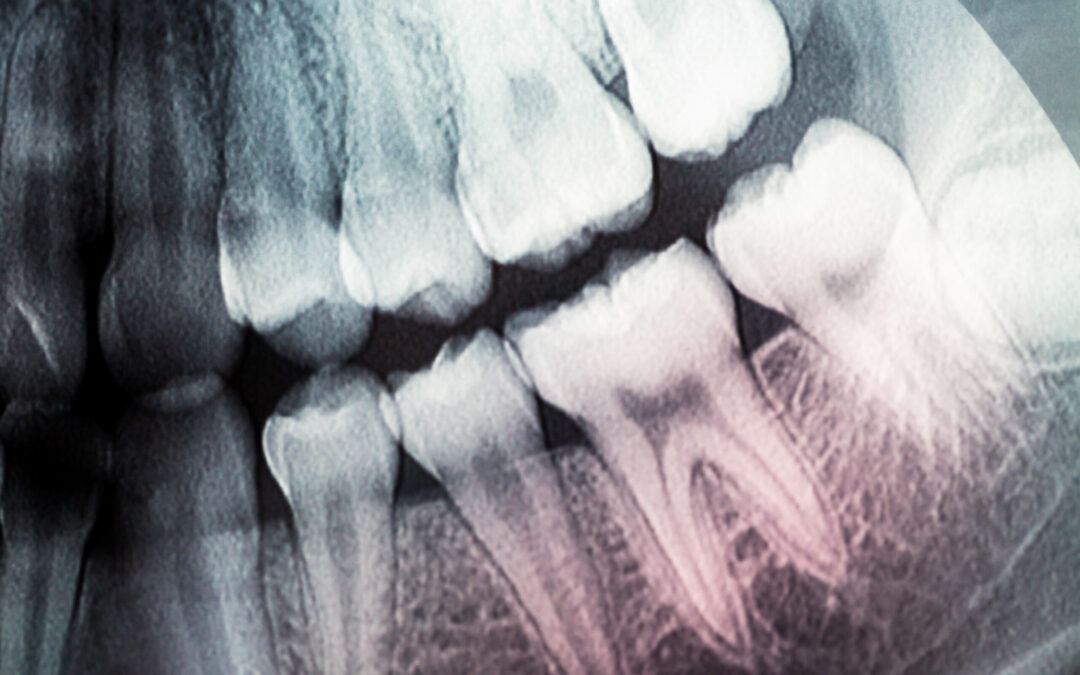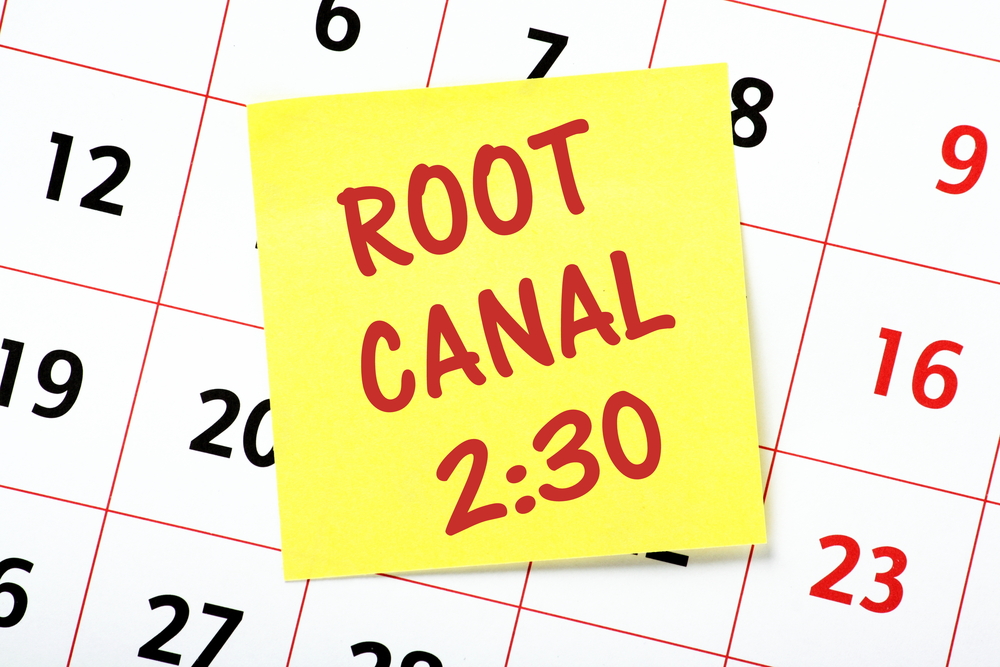by Dr. Jacqueline S. Allen | Dec 21, 2020 | Blog, Endodontics, Endodontist, Root Canal
It’s crucial to have accurate information when considering a root canal. A qualified general dentist or endodontist can offer up-to-date knowledge about how root canals work and why you might need one.
Here are five common root canal questions received at the Phoenix Endodontic Group.
5 Top Root Canal Questions – Answered.
- What symptoms indicate a root canal may be needed? Natural teeth that are candidates for root canals have typically been damaged by decay or infection, or suffered structural damage to the tooth. Symptoms that may call for a root canal include: a severe toothache when you chew or apply pressure to the affected tooth; prolonged sensitivity to hot or cold; a recurring pimple on the gums near the tooth; discoloration of the tooth; swelling or tenderness in adjacent gum tissue.
- Will a root canal hurt? Today’s root canal procedures typically relieve pain created by infection or damage to the nerves inside the tooth pulp, rather than causing pain. Additionally, endodontists receive special training in pain management, so even post-operative discomfort is typically minimal.
- Is a root canal a better option than having my tooth pulled? The answer to this question depends on the overall health of your tooth, the gums surrounding it, and whether other natural teeth are suffering advanced decay or infection. One noteworthy advantage to retaining your natural teeth is a reduced chance of bone loss in your jaw. Such loss can lead to a host of negative consequences.
- What happens during a root canal? Here is a brief overview of how a root canal is performed: First, your endodontist will take X-rays. Then, they will numb the area with a local anesthetic and place a dental dam over the tooth to protect it from bacteria. Next, the practitioner will drill an access hole in the crown of the tooth. The pulp chamber and roots of the tooth will be thoroughly cleaned, shaped with special tools, then filled with a biocompatible material. Once complete, the endodontist covers the opening with a temporary filling. Weeks later, the final step in the procedure takes place: placing a crown, permanently sealing the access hole.
- Does it take a long time to recover after a root canal? Most patients experience some mild tenderness in the area of the root canal for a few days. This is usually managed with over-the-counter or prescription pain relievers. This discomfort should disappear within a week. If you experience severe pain, significant swelling, or if your temporary filling falls out, contact your endodontist as soon as possible so they can examine the tooth.
“It’s normal to be apprehensive if you have never had a root canal before,” says Dr. Allen, who practices with the Phoenix Endodontic Group. “Our office is always happy to answer your questions about root canals and provide you with a more comprehensive view of the procedure.”

by Dr. Jacqueline S. Allen | Nov 23, 2020 | Blog, Dental Implants, Phoenix Endodontic Group
Dental patients have a number of choices when one or more natural teeth cannot be saved, but not all choices are created equal. More and more, adults are choosing dental implants because implants offer advantages not found with other options. Dental implants are one of the most permanent and durable solutions to tooth loss, if the process begins with careful analysis and preparation by your dental team to ensure success.
Let’s take a look at why dental patients are increasingly choosing implants as their restoration of choice.
 Top Reasons Patients Choose Dental Implants
Top Reasons Patients Choose Dental Implants
Dental implants have a very high success rate. A study of the effectiveness of dental implants found that over the course of many years, implants maintain a success rate of between 95 and 99 percent.
Implants can replace a single tooth, several teeth, or an entire arch of teeth. Dental implants are flexible in terms of how many teeth they replace. Given the negative health consequences to losing ANY teeth, the ability to replace them is important.
Dental implants do not require the alteration of healthy natural teeth. Dental bridges are often considered as an option for a person who has lost several teeth. However, a major downside is the necessity of grinding down part of the natural tooth on each side of the bridge. This can weaken tooth structure and lead to decay or additional tooth loss. Dental implants require no such destructive alteration.
Dental implants stop bone loss in the jaw and preserve natural facial contours. Implants are the only tooth replacement option that can stop the bone loss accompanying loss of multiple teeth. Consequently, they also help prevent the “facial sag” that is a long-term consequence of tooth loss.
Dental implants can be more comfortable than other options. Implants use biocompatible titanium fused into your jaw to provide a stable platform for a crown that takes the place of the natural tooth. Implants then function like natural teeth. Dentures, even well-made sets, can come with irritation, soreness, and other challenges.
“Dental implants can be a life-altering option when dealing with tooth loss,” says Dr. Jaqueline S. Allen, who practices at the Phoenix Endodontic Group. “Our practice is skilled and experienced at determining whether you are a good candidate for this type of restoration.”

by Dr. Jacqueline S. Allen | Oct 12, 2020 | Blog, Endodontics, Phoenix Endodontic Group, Root Canal
Many dental patients know that root canals can save natural teeth but may wonder what actually happens inside the tooth with the procedure. Of course, there are many benefits to retaining your natural teeth whenever possible. The root canal treatment procedure replaces the living nerve pulp of your tooth with an inert biocompatible material, usually gutta-percha. Here’s a quick look at how root canals impact your natural tooth and allow them to remain a part of your smile.

How A Root Canal Affects Your Tooth
- The root or nerve pulp. This is the part of a tooth’s anatomy most impacted by a root canal. Typically, a root canal is called for if the tooth nerve has died or if the pulp is badly infected. During a root canal, the nerve pulp is removed with special tools and the canals themselves are flushed with material to treat the infection, so it does not return.
- The dentin. This layer of calcified tissue supports the top layer of enamel in a natural tooth. Dentin is produced by nerve pulp, so once the pulp is replaced with gutta-percha, dentin will no longer be produced in that tooth, which may make your teeth more brittle.
- The enamel. This hard outer layer of your natural tooth protects the internal parts of your tooth. It can be compromised by tooth decay or dental injuries (cracked or broken teeth), allowing bacteria to invade your nerve pulp chamber. A root canal stops this process, because not only does it remove the infected nerve pulp, the finishing restoration – a crown – fits like a “cap” over the tooth enamel, protecting it from additional damage or bacterial intrusion.
- The periodontal ligament. Sometimes a tooth is damaged because it is pushed out of position, threatening the periodontal ligament, which attaches our natural tooth to the jaw. In this case, a root canal can prevent further damage to the tooth, allowing it to be splinted in place to encourage the periodontal ligament to reattach and preventing infection issues inside the tooth.
While root canals do not “kill” natural teeth, removing and replacing the nerve pulp makes the tooth more brittle. Your endodontist will determine if you need additional restorations beyond a crown to ensure your tooth has sufficient support to function normally.
“Root canals do change how your natural teeth function, but they allow the other structures that are part of your teeth and gums to return to health, supporting your overall oral wellbeing,” says Dr. Allen, who practices with the Phoenix Endodontic Group. “Our practice is always happy to explain precisely how endodontic treatment can help preserve your natural teeth.”

by Dr. Jacqueline S. Allen | Sep 21, 2020 | Blog, Dental Implants, Phoenix Endodontic Group
Replacing a tooth – or all of them, if necessary – with a dental implant is a major health decision. It is important to understand what a dental implant can do for you, how the procedure will work, and postoperative care. Here are five questions you will find helpful to know the answers to before beginning your dental implant procedure.
 5 Questions To Ask Before Choosing A Dental Implant
5 Questions To Ask Before Choosing A Dental Implant
-
Why does it matter if I replace a failing/missing tooth? Although a tooth extraction may seem less expensive, there are a host of oral health issues that can be prevented by getting an implant. Dental implants can prevent shifting of your remaining natural teeth, make it less likely you’ll suffer gum disease or tooth decay, and can prevent the “facial collapse” that often happens with the loss of one or both arches of your teeth.
-
Why is an implant favored over a root canal? It’s good to know why your dentist does not recommend trying to save your natural tooth. Perhaps the structure of your tooth has deteriorated to the point it simply won’t support a root canal and a crown. Or perhaps there is a crack, especially one extending down below the gumline, that would make a root canal impossible. Your dentist should be able to explain why they are recommending a dental implant over a root canal and what clinical conditions make you a better candidate for the implant.
-
How long will the entire implant process take? The answer to this question will be highly individualized, depending on how many natural teeth will be replaced, if you have bone density challenges in your jaw that need to be addressed, if your dentist recommends using All-On-4 overdentures for a full arch of dental implants, and other factors. Your dentist should be able to provide a clear, easy-to-understand treatment timeline for you.
-
Will my implant be successful over the long term? Overall, dental implants have a high success rate – usually about 95 percent. They are designed to last a lifetime. What you really want to find out from your dentist by asking this question is how likely it is that a dental implant will be a permanent solution to your oral health challenges.
-
What do I need to know about managing pain after the dental implant? Your dentist should provide you a complete postoperative pain guide, that will cover how to manage discomfort (which is normal during the first few days after the procedure) and what types of pain you should call your dentist about. In general, nearly all swelling, tenderness or discomfort should be gone within seven to 10 days of your procedure.
“At Phoenix Endodontic Group, we want to ensure our patients understand why we recommend a dental implant over another procedure,” says Dr. Jaqueline S. Allen. “Answering patient questions is part of how we partner together to ensure the experience is comfortable and successful.”

by Dr. Jacqueline S. Allen | Aug 28, 2020 | Blog, General Information, Phoenix Endodontic Group

Phoenix Endodontic Group is collecting PPE Gowns for AZ Humane Society Trauma Hospital and challenging our referral partner offices to join us in donating. We will match your donations of PPE Gowns during the collection drive for the month of September.
- AHS is facing a shortage of isolation gowns for its Second Chance Animal Trauma Hospital™ and intensive care units.
- On average, AHS uses 950 disposable gowns per week for the nearly 18,000 sick, injured and abused homeless pets AHS takes in each year.
Start up your collection at your office today! Join us, make a difference and we will match your contribution of gowns to deliver to AZ Humane Society.
Watch the FOX 10 video to learn more.
Reach out to Kim Rowell via email: kim@phoenixendodontist.com or give her a call at 602.288.9149, to schedule your office pickup.

by Dr. Jacqueline S. Allen | Aug 23, 2020 | Blog, Endodontics, Endodontist, Root Canal
Root canal treatments are highly effective in saving injured or infected natural teeth. They are typically not lengthy procedures, but most laypeople are not clear on what’s involved in a root canal or what to look for when selecting a practitioner. If your regular dentist has recommended an endodontist perform your root canal, you will want to be fully informed and feel confident about your treatment. Here are some questions to help you prepare.

What To Ask Your Endodontist Before A Root Canal Treatment
-
What kind of equipment is used for root canals? Endodontists typically perform the procedure far more frequently than a general dentist, so they also have specialized equipment that make the process easier and faster. This equipment can also help better resolve unexpected challenges that may present themselves during the treatment.
-
Do I need to take antibiotics before my root canal treatment? If you have certain types of systemic health issues, including a past history of infective endocarditis, your endodontist may prescribe antibiotic prophylaxis to ensure that you are protected should any oral bacteria enter the bloodstream. If you have an abscess, antibiotics may also be called for. Discuss your entire health history with your endodontist when your root canal is in the planning stages.
-
How many visits will my root canal take? Most root canal treatments are done in a single session, but occasionally you will need to return for a second appointment to finish the procedure. If that’s the case, your endodontist will place a temporary filling to protect your tooth until the treatment is finished.
-
How soon should I make my root canal appointment? Your regular dentist may have already communicated some of your symptoms to the endodontist, and this may give them a rough idea of how soon you need to be treated. However, some symptoms of a serious tooth injury are only apparent after a thorough clinical examination by a specialist; even if you think your symptoms aren’t bothersome, you should make an endodontic appointment as soon as one is available.
-
What should I do if I experience pain after my root canal? Your endodontist should provide you with a pain management plan for the first few days after your treatment, when some discomfort is normal. This may include information on using cold packs or pain-reducing medication. If you experience moderate or severe pain after the third day following your procedure, call your endodontist to see if they would like you to come back in for a recheck.
“Endodontists welcome questions from patients before, during, and after a root canal treatment,” says Dr. Allen, who practices with the Phoenix Endodontic Group. “We want you to understand your case fully, and we will provide you all the information you need to be comfortable and confident about your procedure.”








